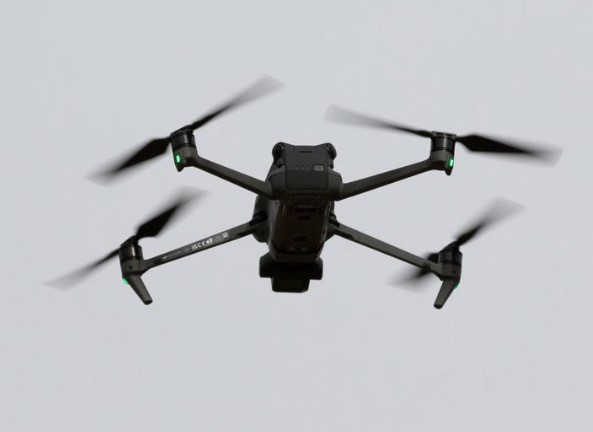Mysterious Drone Activity Over Ramstein Base
In early December, unidentified drones were observed flying over the Ramstein NATO base in Germany, sparking concerns about possible espionage operations linked to Russia. These sightings have raised alarms within security circles, as the drones are suspected of conducting reconnaissance missions as part of Russia’s ongoing hybrid warfare strategies. Hybrid warfare involves a mix of conventional military tactics, cyberattacks, and covert intelligence-gathering operations to destabilize and weaken adversaries.
Reports indicate that these drones, equipped with advanced technologies, could have been engaged in intelligence-gathering activities targeting NATO operations and allied nations supporting Ukraine in its defense against Russian aggression. Ramstein air base, a critical hub for NATO’s military coordination and logistics, is believed to have been a primary focus. Additionally, the drones might have targeted other vital infrastructure in the region, such as the BASF chemical plant in Ludwigshafen, a significant industrial facility.
The advanced flight characteristics and stealth capabilities of these drones have led experts to suspect their connection to Russian special services. By utilizing unmanned aerial systems, adversaries can carry out surveillance activities with minimal risk of detection, making them a potent tool in modern espionage.
Possible Intelligence Targets of the Drones
Security experts have outlined several potential objectives for these drones, highlighting the multifaceted nature of their mission:
Monitoring Military Aid to Ukraine: The drones are believed to be monitoring the flow of military equipment being sent to Ukraine by NATO allies. This includes tracking the quantity and type of weaponry, vehicles, and other logistical supplies critical to Ukraine’s defense. Understanding the scale and specifics of military aid could provide valuable insights into Ukraine’s combat readiness.
Surveillance of Ukrainian Military Training: Ramstein air base is not just a logistical hub; it also serves as a training site for Ukrainian soldiers. These drones may have been collecting intelligence on the training activities, including the strategies and techniques being taught to Ukrainian troops. Such information could be used to anticipate Ukraine’s battlefield tactics.
Identifying Weaknesses in Critical Infrastructure: Beyond military operations, the drones could also be targeting Germany’s critical infrastructure. This includes power plants, industrial facilities, transportation systems, and communication networks. Identifying vulnerabilities in these areas could allow adversaries to plan potential disruptions or sabotage.
The drones’ ability to operate undetected over high-security zones like Ramstein underscores the growing sophistication of hybrid warfare. By combining physical reconnaissance with other tactics such as cyberattacks and disinformation campaigns, adversaries aim to exploit weaknesses and create instability without resorting to open conflict.
Growing Threat of Drone Espionage in Germany
Since Russia’s full-scale invasion of Ukraine in February 2022, suspicious drone activity in Germany has surged. These drones, suspected of being linked to Russian intelligence, have targeted key sites like the Ramstein NATO base and the BASF chemical plant in Ludwigshafen. German security agencies, including police and counterintelligence, have been closely monitoring these incidents.
Strategic Targets of Surveillance
Experts believe these drones are focused on:
- Monitoring military aid sent to Ukraine.
- Observing Ukrainian military training at Ramstein.
- Identifying weaknesses in critical infrastructure.
As a central hub for NATO coordination and logistics, Ramstein is a high-value espionage target. Germany’s role as a key ally to Ukraine, providing military aid and hosting strategic meetings, has further intensified hostile surveillance efforts.
Hybrid Warfare Challenges
The increasing use of drones highlights the evolving nature of hybrid warfare, where adversaries employ advanced technologies to gather intelligence and exploit vulnerabilities. German authorities remain vigilant, investigating these threats to ensure the security of military and industrial sites and the broader stability of the region.

